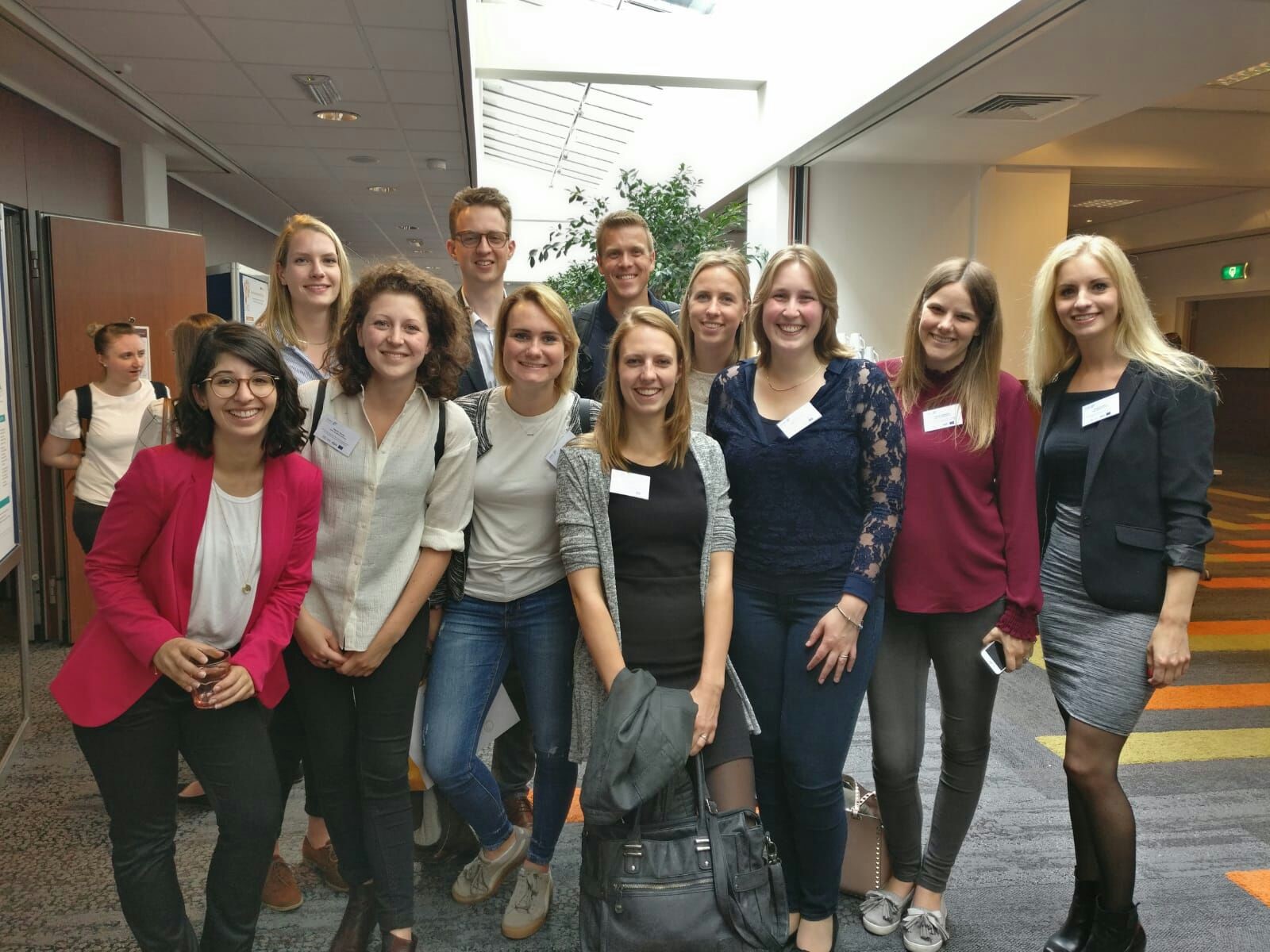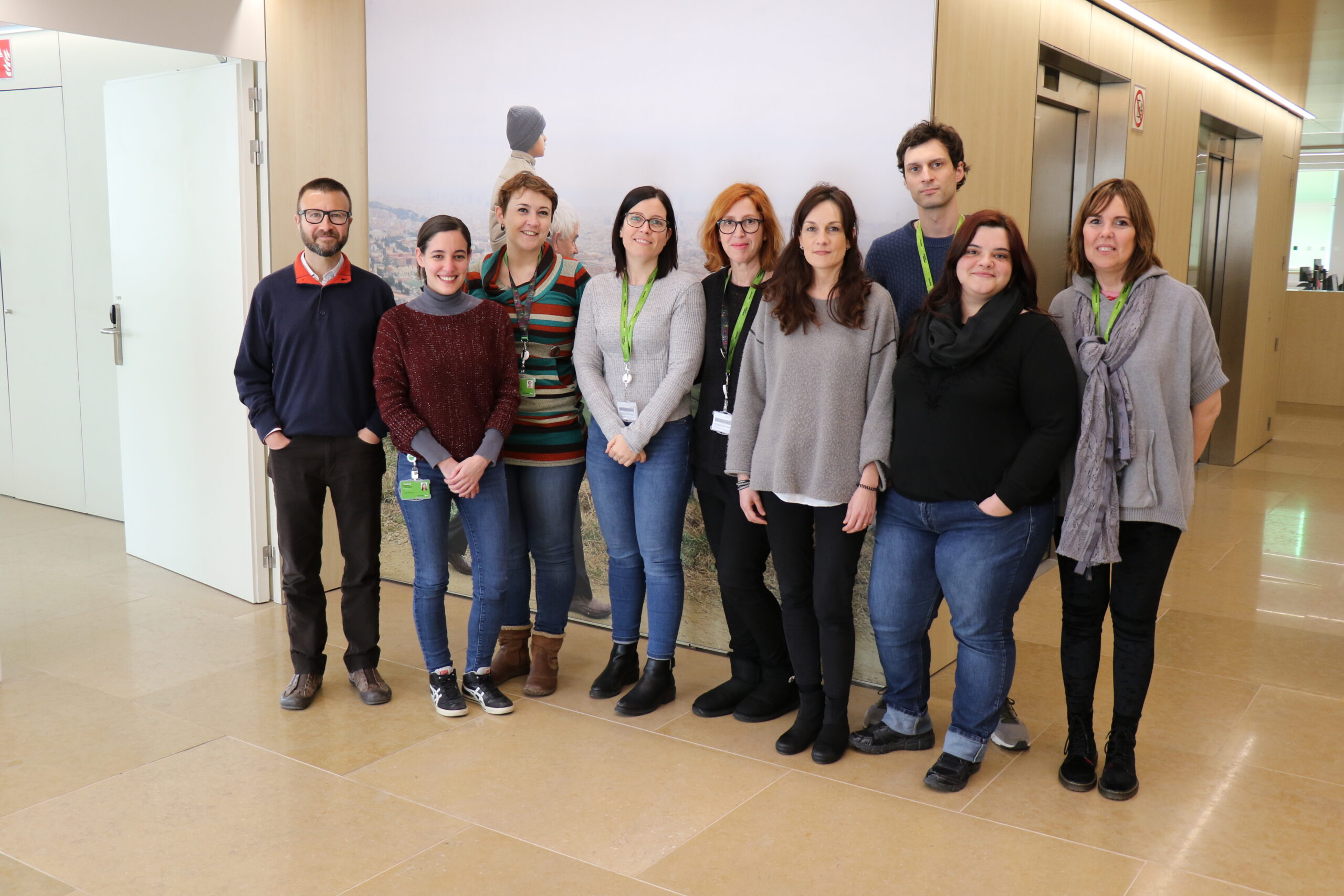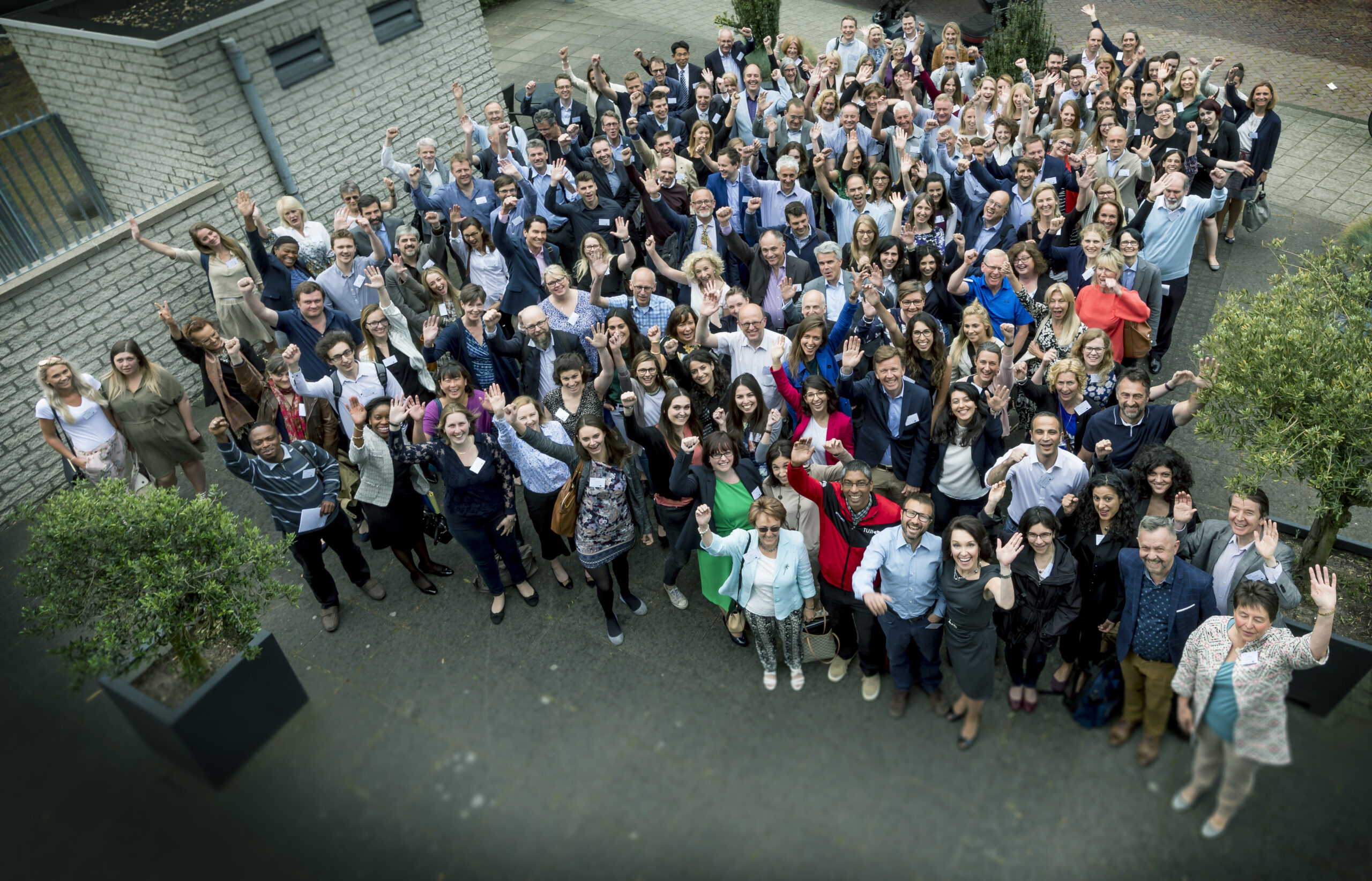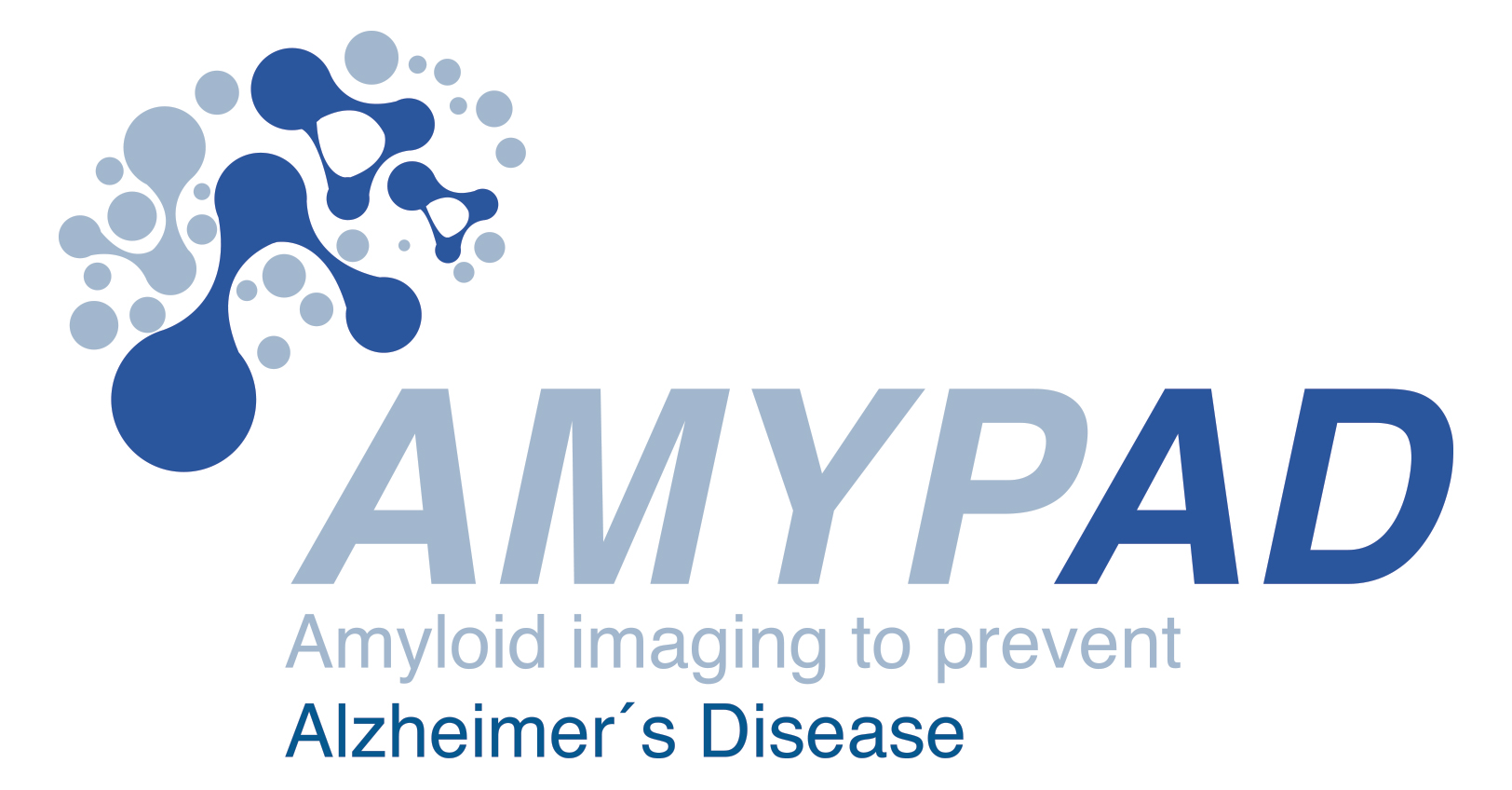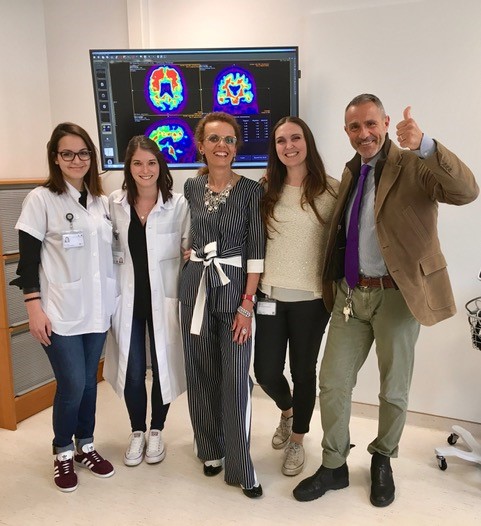This year, the European Prevention of Alzheimer’s Dementia (EPAD) general assembly meeting was held in Amsterdam, under the banner “How to assure sustainability”. It was hosted by VU University Medical Center (VUmc) Amsterdam and kindly sponsored by VUmc, Amgen, Novartis and Janssen. The meeting provided a chance to gather everyone from across many different countries who work on the EPAD project to discuss progress and future activities.
Discussions on study progress and future plans
The general assembly meeting commenced with Serge Van der Geyten, Craig Ritchie, and Philip Scheltens welcoming more than 180 attendees. They gave a general overview of the project, reflected on the evolution of EPAD and introduced the agenda for the coming days. Neil Mitchell, Joe Milne and Kristy Draper then explained the role of the University of Edinburgh (UEDIN) in the EPAD Longitudinal Cohort Study (LCS) and the Proof of Concept (PoC) platform. The enhanced role of IQVIA within the study management under the leadership of UEDIN was also reported. Craig Ritchie closed the day by presenting the LCS and Trial Delivery Centers (TDCs) network as the heart and soul of the EPAD project.
The second day placed the emphasis squarely on the EPAD LCS.
During the first session, Joe Milne reported the current LCS status and the progress thus far. Besides the increased recruitment rate, we were glad to see the EPAD family of TDCs growing –17 sites are now enrolling research participants and a number of other sites should be activated and opened in the coming days and weeks. Katrin Haeverans, Emma Law and Craig Ritchie provided more insights to the implemented LCS recruitment strategies, like the establishment of the LCS recruitment taskforce and activation of PrePAD Velocity for all sites. The latter initiative will not only boost recruitment, but will further enrich the LCS with prodromal Alzheimer’s disease research participants and thus ensure the LCS can serve as a successful readiness cohort for the first PoC appendix.
The next session was hosted by Craig Ritchie, who invited five national principal investigators to present their TDCs and report their lessons learned and future plans. There was also a presentation on the EPAD research access process by Judith Syson and James Bonner. During the afternoon of the second day, participants reflected on WP-specific activities and research in the areas of Alzheimer’s disease and dementia via an interactive poster session which was followed by three work package breakout sessions.
The third and final day of the meeting hosted sessions on the PoC protocol, virtual pipeline and EPAD branding. Craig Ritchie and Serge Van der Geyten closed then the meeting by presenting what the project wants to achieve in 2019 and beyond. There was also an exciting announcement that the inclusion of the first candidate for the PoC will likely happen in Q1 2019.
EPAD research participants at the heart of the EPAD project
We are absolutely delighted that seven EPAD research participants from UK, Spain and the Netherlands were willing to come to the general assembly. During the second day of the meeting, they had the opportunity to meet together within the session organised for the research participant panel. The EPAD participant panel has been established in order to involve the research participants in every aspect of the study, giving them an active voice in the project and helping the collaborators learn from their experiences. Currently, there are three panels running across Europe.
47 young researchers are involved in the EPAD project
The highlight of this year’s General Assembly was the presence of 25 young researchers (fellows) involved in the EPAD project. During the third and final day, the EPAD consortium gathered for an EPAD Academy session, who welcomed oral presentations of nine young researchers. It was also fantastic to hear more about the EPAD Academy aims and activities. During the meeting, four fellows also had the opportunity to present their work in a poster format.
Thank you
The three-day assembly firmly emphasised the importance of collaboration between the different European sites and partners to assure the sustainability of our project. We would like to take this opportunity to thank all Epadistas and those involved in and collaborating with EPAD.
To cap off a successful few days, we reached an exciting milestone just as the general assembly concluded, with the news that we now have 700 screened research participants in the LCS.

